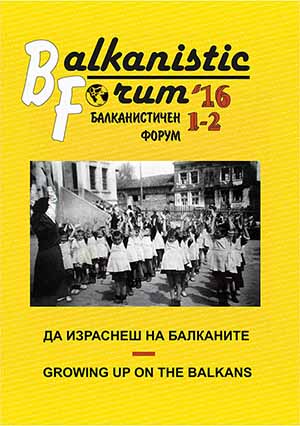(А)нормалност и „възпитаемост” на учениците: аспекти на училищната хигиена в България през междувоенния период
(Ab)normalities and Students’ “Ability to be Educated”: Aspects of School Hygiene in Bulgaria during the Interwar Period
Author(s): Gergana MirchevaSubject(s): Education, Cultural history, Social history, Recent History (1900 till today)
Published by: ЮГОЗАПАДЕН УНИВЕРСИТЕТ »НЕОФИТ РИЛСКИ«
Keywords: abnormality, problematic students, school mental hygiene, biopolitics, eugenics
Summary/Abstract: The article focuses on the students considered difficult to be educated, as a key target of the school politics towards abnormal children in interwar Bulgaria. The aim is to trace the main classification strategies and technologies for normalization of those who deviated from certain medico-psychological and pedagogical norms. In order to reconstruct the profiles of these problematic students, the first part of the article analyzes some general concepts and trends of school mental hygiene. The emphasis of interpretation is put not on the sanitary meanings of school health but on its social preventive agenda, including models of moral health and collective normality. The main concept of abnormality is clarified as signifying pathological and pathologized conditions, which, by reason of their social unacceptability, are subject of normative formula of classification and disqualification. The second part of the article provides typologies of the abnormal students’ classifications and a review of the normalization technologies, as discussed in scholarly and popular-scientific publications. The alleged congenital or socially determined nature of students’ deviations is suggested as a key classification criterion. In relation to it, the analysis considers the influence of constitutional, holistic and eugenic theories, as well as of the special education measures. A conclusion is made that in the interwar period, Bulgarian schools developed as institutions of “biopedagogical surveillance”. The medico-pedagogical strategies towards abnormal students, who were regarded as difficult to educate, demonstrate the increased importance of these students under the framework of state biopolitics.
Journal: Балканистичен Форум
- Issue Year: 2016
- Issue No: 1-2
- Page Range: 179-196
- Page Count: 18
- Language: Bulgarian
- Content File-PDF

